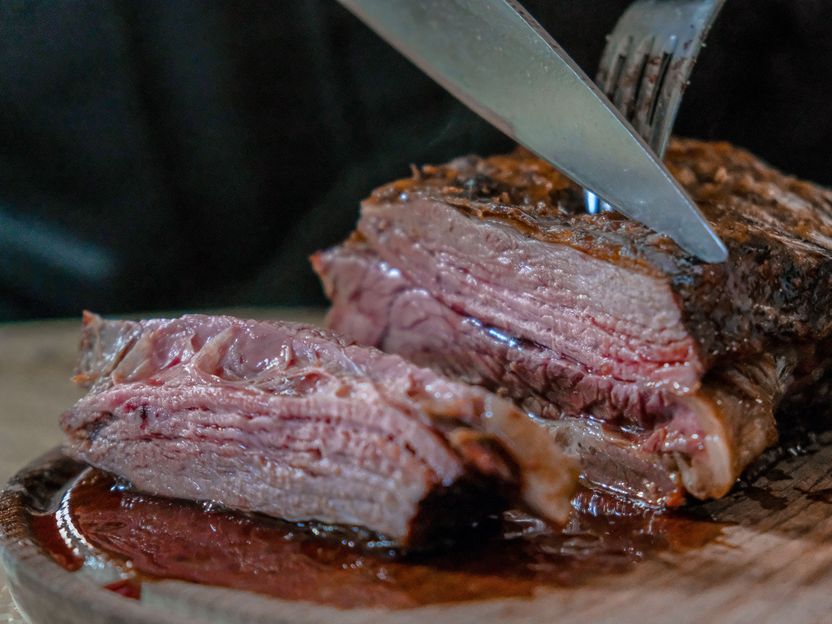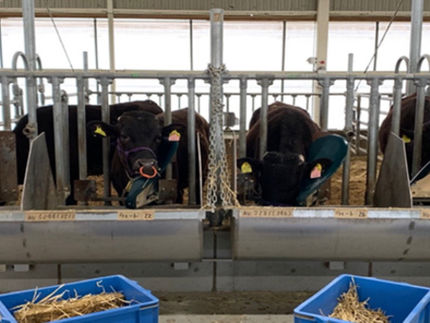Meat strengthens sexual desire in men
It is widely known that men reach for red meat more often than women. An international study conducted by Monash University in Melbourne has found several reasons why: red meat stimulates men's love life.

Photo by José Ignacio Pompé on Unsplash
Steak is not only a good source of iron, but could also help men with love. The study shows that red meat helps men to have more sexual pleasure and thus supports their mating behaviour.
Studies with more than 1600 participants from Australia, the USA and Great Britain have shown that men tend to opt for meat-based dishes if, in addition to the desire for status and wealth, there was also the motivation to find a mating partner.
In contrast, when women tried to make themselves desirable to men, they put beauty and vegetarian alternatives over meat.
The provocative study by Dr Eugene Chan, Senior Lecturer in Marketing at Monash Business School, and Associate Professor Natalina Zlatevska of the University of Technology Sydney was published in the Food Quality and Preference Journal on Wednesday 22 January 2019. This follows earlier research by both scientists into the link between meat and social status.
"Sexual desire and mating wishes are the basis for the existence of mankind. Therefore, our search for a partner in the evolutionary psyche is so fundamental that it could also influence food choices - as long as they are relevant to the achievement of mating goals," Dr Chan said.
Previous research has seen status qualities such as wealth, trust, ambition and philanthropy as desirable attributes for men.
Throughout the history of human evolution, meat has been both rare and difficult to prepare. Meat consumption not only strengthened the consumer, but also gave women status and wealth, leading to a greater willingness to mate among women.
"The link between meat and status is based on evolutionary causes of consumption. Cave dwellers consumed meat to be strong, healthy, and powerful enough to survive the inhospitable environment. The royal house and the nobility also consumed meat because it displayed wealth," said Professor Zlatevska.
"To this day, we still celebrate mainly with meat, especially at Christmas, Thanksgiving and weddings, and on occasions that we share with family and friends.
As part of the broad project, three different behavioural studies were conducted to establish a link between sexual motivation and meat consumption.
The first study monitored the food choices of 268 students in Australia after being exposed to images of attractive men and women - none of whom were naked or sexually provocative. After observation, students had the choice to eat either beef or vegan dried meat as a reward for their participation. More than 86% of the men chose beef, but only 54% of the female participants.
For the second study, 878 Americans were divided into two groups. The participants of one group were asked to introduce themselves, one very desirable person of the other.
It's a great way to meet her, have a romantic evening with her and have a relationship with her. In the control group, the participants imagined a fun night with a friend of the same sex.
The results showed that men who were sexually motivated in the test were more likely to choose a beef burger than their male counterparts in the control group.
Using the same techniques of manipulating sexual motivation, the final study extended the hypothesis of pig consumption to 489 participants from Great Britain. The results showed that the consumption of beef and pork improved the sexual condition of men, and the vegan option was overwhelmingly rejected.
Dr Chan said the research also had practical implications for marketers and advertisers in the food industry.
According to the Worldwatch Institute, meat consumption per capita rose from 31.3 kg in 1999 to 41.9 kg in 2010 worldwide.
"Sexual stimulation is abundant in modern society. We cannot avoid such stimuli or images when we leave home or watch our favorite TV or online shows.
"If exposure to sexual stimuli can affect food choices, policy-makers, health officials and food sustainability advisors need to be aware of this context to change attitudes towards meat and other products.






















































